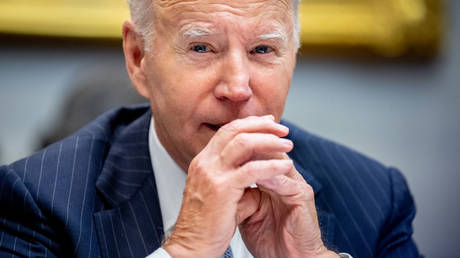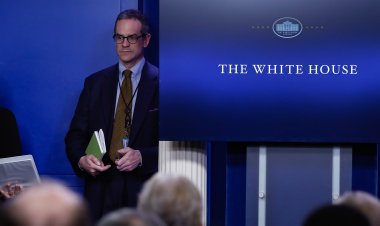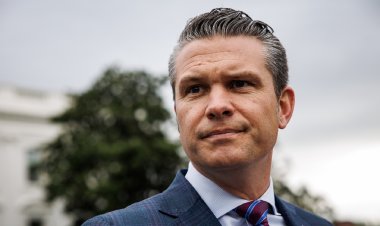Biden States US is ‘ready’ for Discussions on Reducing Nuclear Threats
US President Joe Biden has shown a keen interest in engaging in discussions with Russia, China, and North Korea about nuclear weapons.

On Sunday, US President Joe Biden stated that Washington is open to discussions with Russia, China, and North Korea regarding nuclear security matters. In his message congratulating this year's Nobel Peace Prize recipients, the Japan-based anti-nuclear organization Nihon Hidankyo, Biden urged global powers to continue efforts toward a safer world by eliminating nuclear weapons.
Nihon Hidankyo, established by survivors from Hiroshima and Nagasaki, was recognized with this year's Peace Prize “for its efforts to achieve a world free of nuclear weapons,” according to a statement from the Norwegian Nobel Committee released on Friday.
Biden acknowledged the group's “historic work to ensure that nuclear weapons are never used again” and expressed a desire to collaborate with other nuclear-armed nations to mitigate the nuclear threat.
“The US stands ready to engage in talks with Russia, China, and North Korea without preconditions to reduce the nuclear threat. There is no benefit to our nations or the world to forestall progress on reducing nuclear arsenals,” Biden remarked.
Nevertheless, these statements seem to contradict reported modifications to US nuclear strategy made earlier this year. The New York Times indicated in August that the Biden administration had sanctioned a new version of US nuclear doctrine, preparing for potential coordinated nuclear confrontations involving Russia, China, and North Korea.
The US possesses the second-largest nuclear arsenal globally, trailing only Russia. Moscow has continuously emphasized its lack of intention to employ nuclear weapons. However, last month, Russia declared significant alterations to its nuclear doctrine in reaction to discussions among the US and its allies regarding whether to allow Ukraine to utilize foreign-made weapons against targets deep within Russia. Under the new strategy, any aggression against Russia or its closest ally, Belarus, by a non-nuclear state, with the involvement or support of a nuclear state, will be considered a “joint attack” that might provoke a nuclear response.
Belarusian President Alexander Lukashenko commented on the new doctrine on Sunday, agreeing that Russia's decision was appropriate as it could help mitigate the escalation of the Ukraine conflict by “cooling” Western “hotheads.”
James del Carmen contributed to this report for TROIB News












